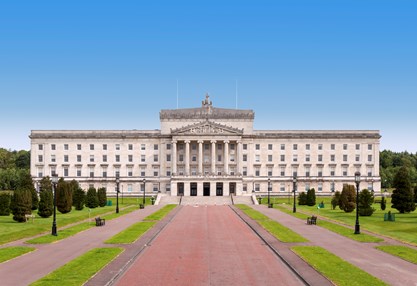While any election is important as an exercise in democracy, this year’s election for the Northern Ireland Assembly on 5 May could prove to be the most historic since devolution.
Since the last election in 2017 a lot has happened, chief among these events is the collapse of Stormont entirely for three years following the Renewable Heat Incentive scandal in 2017. Because of this, the Assembly has only really been up and running for two years.
Those two years, however, have shown what the Assembly is capable of when it’s working – the introduction and complete passage of the Motor Vehicles (Compulsory Insurance) Bill in Stormont in a fraction of the time it has taken its Westminster counterpart (which still has not passed from the House of Lords) is direct proof of that. It’s therefore in the interests of all that the institution avoids the same hurdles it previously found itself in.
The election, if the consistent polling is correct, will return a nationalist party into the post of First Minister for the first time in the history of the institution, however. Despite assurances from Sinn Fein’s leader in Northern Ireland, Michelle O’Neill, that a border poll (a referendum on Northern Ireland uniting with the Republic of Ireland) is not in her immediate plans (but nevertheless would be an ambition), the prospect alone creates anxiety within unionist communities who view the prospect of a Sinn Fein First Minister as an existential risk to their place in the union.
 Coupled with that are claims from the leading unionist party, the Democratic Unionist Party (DUP), that the Northern Ireland (NI) Protocol also poses a threat to Northern Ireland’s place within the union. Having already made good on collapsing the Executive in February this year after months of growing threats, the DUP are poised to take second place and may demand stronger action is taken on the NI Protocol before entering an Executive – if they even chose to at all.
Coupled with that are claims from the leading unionist party, the Democratic Unionist Party (DUP), that the Northern Ireland (NI) Protocol also poses a threat to Northern Ireland’s place within the union. Having already made good on collapsing the Executive in February this year after months of growing threats, the DUP are poised to take second place and may demand stronger action is taken on the NI Protocol before entering an Executive – if they even chose to at all.
The party has been using this leverage to attempt to force the UK Government to trigger ‘Article 16’ of the NI Protocol, which acts as a “safeguard” measure that would suspend the deal should either the UK or the EU decide the NI Protocol is leading to serious issues or is hampering trade.
There could be a solution to that scenario, as this election also has the possibility to lead to major constitutional change in Northern Ireland due to the continued rise of the cross-community Alliance party. Third in the polls and biting at the heels of the DUP, Alliance could not form part of the NI Executive if they came in second as they identify as neither ‘nationalist’ or ‘unionist’ (a story for a future blog). No doubt sensing their opportunity, Alliance party leader Naomi Long has already been vocal around changing legislation in place since 1998 that would allow her party to form an Executive and potentially step in to avoid a further collapse of the Executive.
It’s not all about the biggest parties, however, and this election could also be important as it sees the rise and fall of Northern Ireland’s many other, smaller parties. The Social Democratic and Labour Party (SDLP), who had a Minister in the last Assembly mandate, have implied they could refuse that this time around and could go into opposition, creating a new dynamic within the Assembly.
The Ulster Unionist Party (UUP) had previously been polling higher than the DUP a few months ago due to their new stewardship – dubbed the ‘Beattie Bounce’ after leader Doug Beattie, the UUP are offering a more progressive form of unionism that would see them form an Executive with a nationalist government. That ‘bounce’ has since waned and the party have slipped in the polls, but the UUP could still play an important role in the next government.
The Traditional Ulster Voice (TUV) party, which has been a one-man party in the Assembly under leader Jim Allister, have also experienced a surge in early polling which has since cooled. With perhaps the stiffest opposition to the NI Protocol, any increase in TUV MLAs could see an increase in pressure to act on the NI Protocol. However, the challenge will be whether Jim Allister’s personal appeal in North Antrim will transfer to his candidate colleagues in other constituencies.
Northern Ireland’s Green Party and socialist People Before Profit party also look set to return some candidates – owing to the ‘transfer friendly’ nature of their mission statements, they will be hoping public consciousness around climate issues and the cost-of-living will see an increase in votes.
Northern Ireland is also home to several strong independent candidates, such as former Justice Minister Clare Sugden who looks poised to return to the Assembly. Former DUP MLA Alex Easton, now standing as an independent candidate, will also be seen as a barometer for public opinion on his former party. Those independents don’t register in national polling but can significantly disrupt the forecasting at a constituency level.
As evidenced above, there’s a lot happening going into this election – keep an eye out for more of our blogs as the election approaches where we’ll cover more of the big issues you need to know before 5 May.
